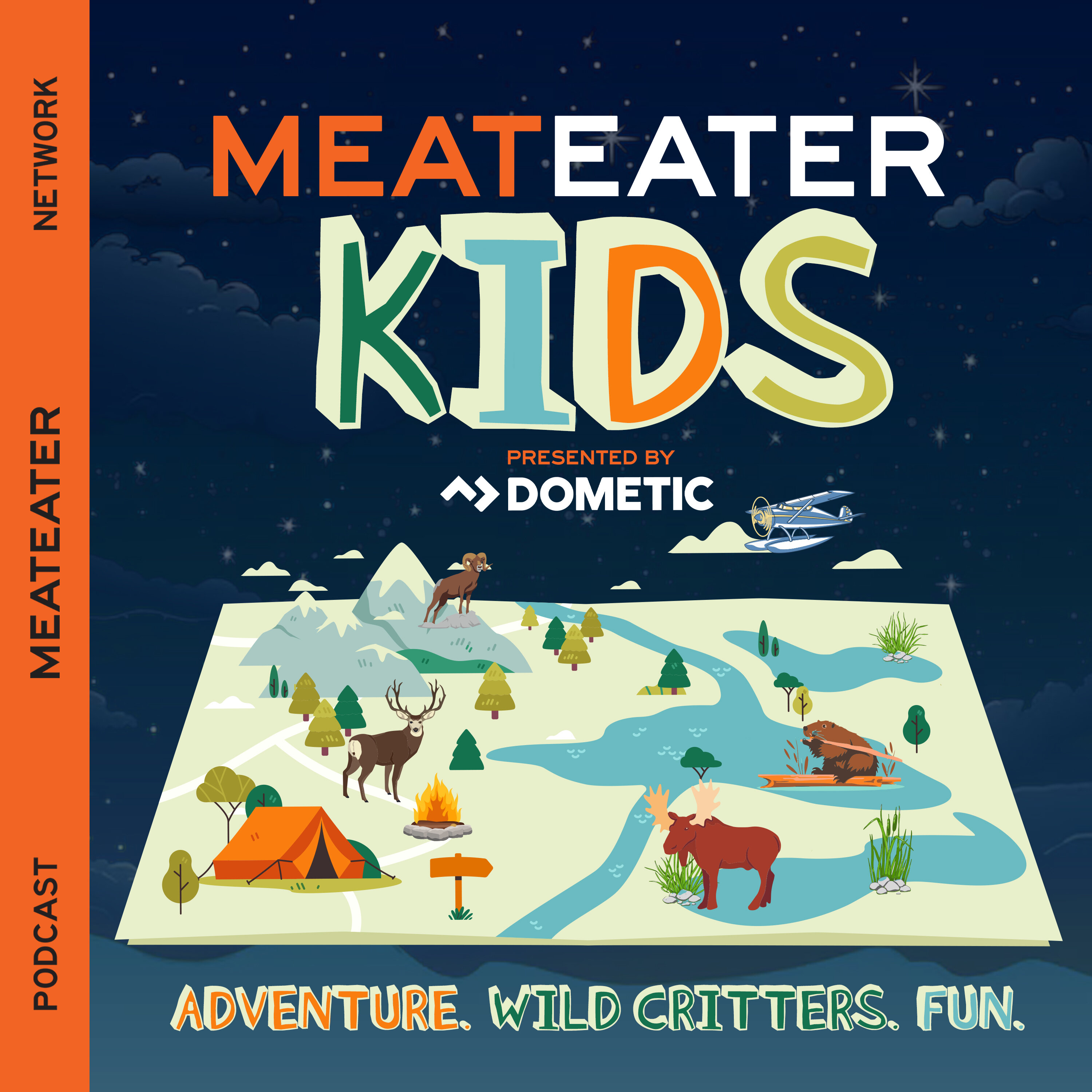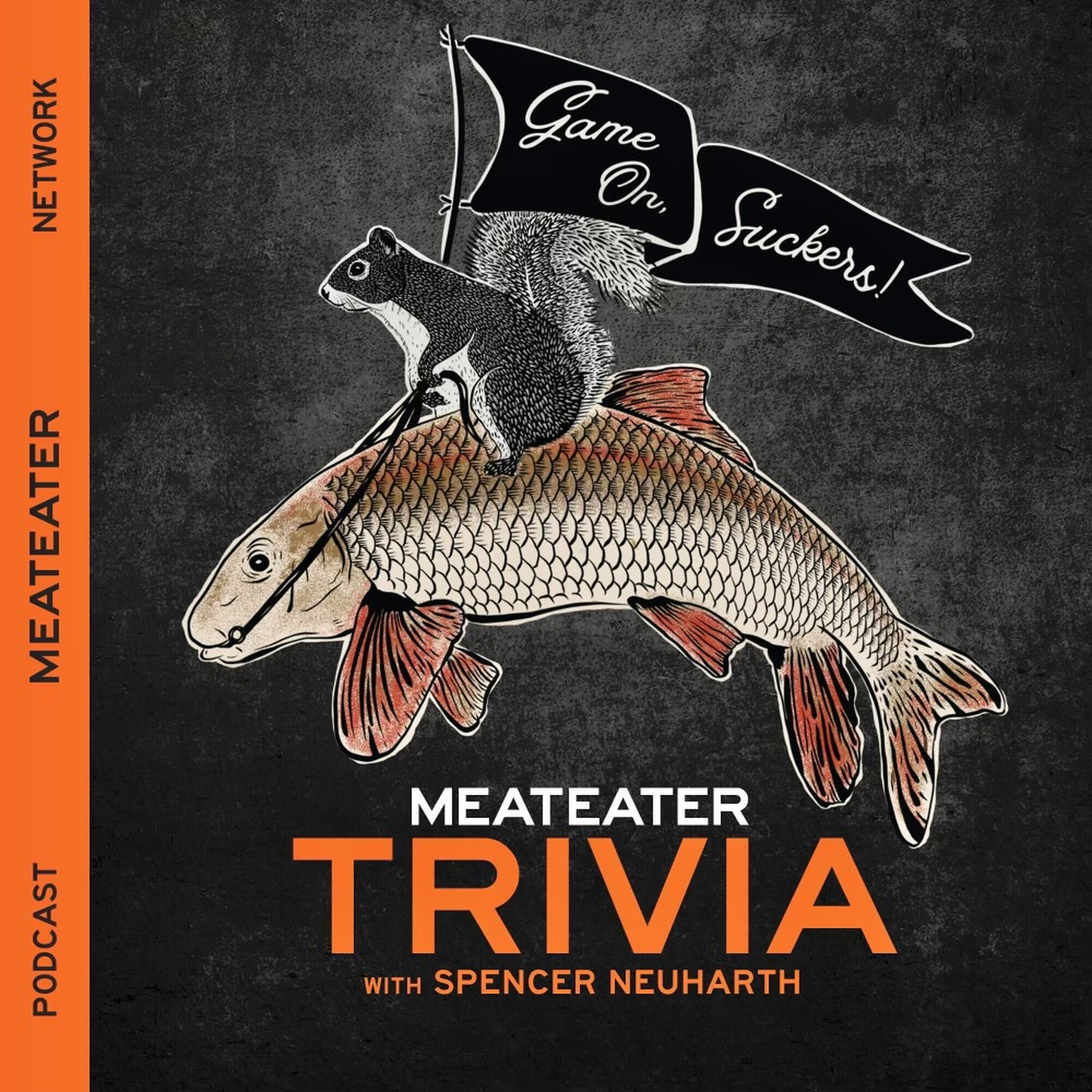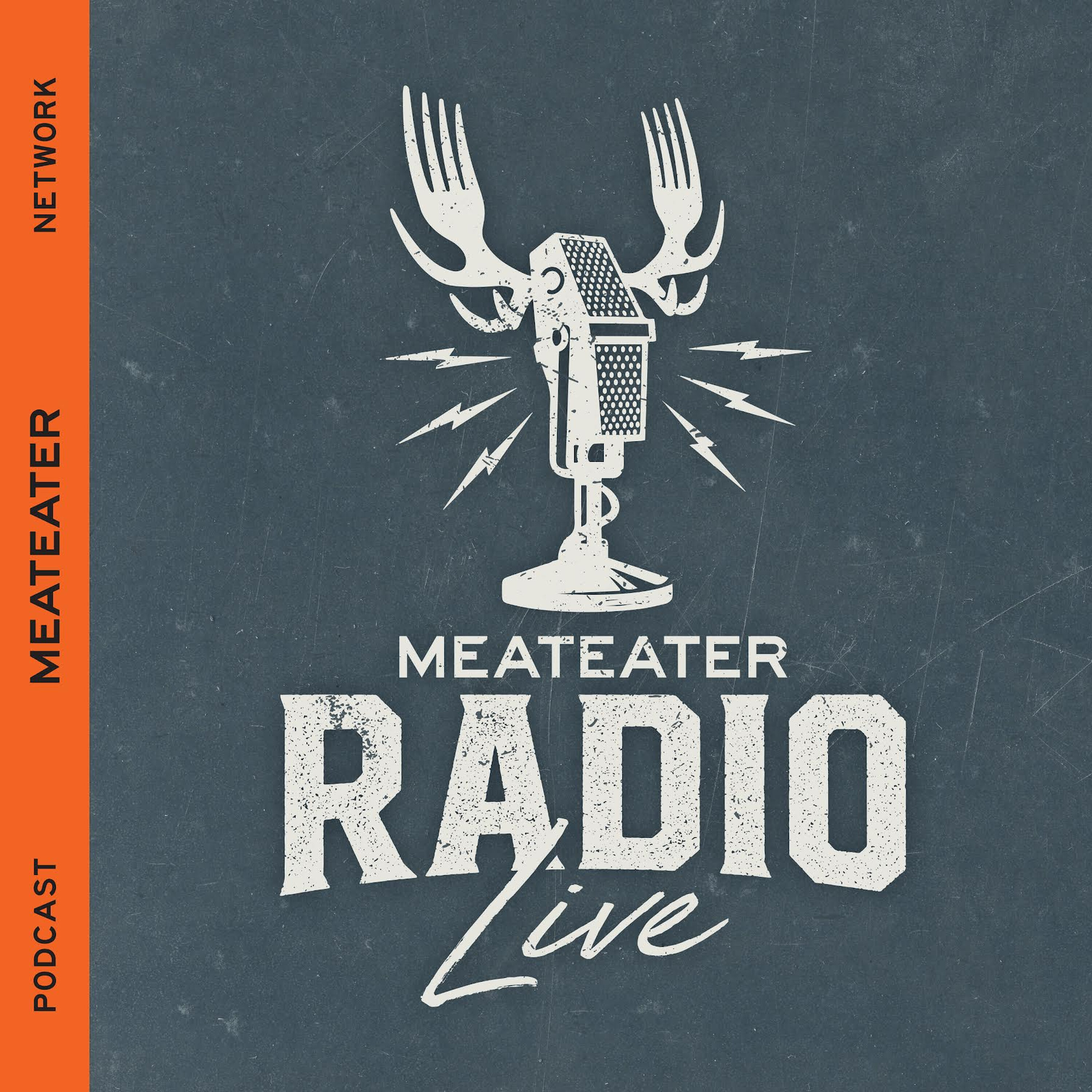AI Summary
In this episode, children learn about the anatomy and significance of gizzards in birds, focusing on their role in the digestion of tough foods like seeds and nuts. The discussion includes a 'Guess that Critter' game featuring mountain lions, their characteristics, and their habitats. A trivia segment engages kids with questions about Mount Rushmore, encouraging their knowledge of U.S. geography while promoting wildlife conservation efforts through donations. The episode also features an interactive quiz on baby animal names, fostering critical thinking and reinforcing the podcast's educational mission.
The podcast segment discusses the unique organ called the gizzard found in birds, describing its muscular structure and vital role in digesting hard seeds and nuts, particularly in game birds like ducks and turkeys. It contrasts the digestive processes of meat-eating birds, which do not possess gizzards, highlighting the importance of this organ in the diet of birds that consume hard materials.
Mountain lions are explored in their sound and hunting characteristics, alongside an explanation of gizzards in birds. Gizzards function as meat grinders with gravel, needing long cooking times to become edible. The segment "Guess That Critter" engages listeners with animal sounds while educating them about these critters' unique traits and behaviors.
Participants in a trivia game earn money for conservation with each question they answer correctly. The episode features a question about the location of Mount Rushmore, where kids discuss their opinions and experiences related to the monument. The focus is on engaging young listeners through interactive learning while expanding their knowledge of nature and important sites.
This episode of the MeatEater Kids podcast engages young listeners with trivia about baby animals, such as identifying that a baby moose is called a calf. It includes a fun quiz segment, where kids learn about Baloo from the Jungle Book, showcasing their knowledge and fostering interactive learning. Additionally, the episode emphasizes fundraising efforts, raising $210 for conservation, while announcing future episodes that continue the educational theme.
- more AI-processed summary -
Takeaways
Gizzards are vital for the digestion of hard foods in game birds, differentiating them from birds that consume primarily meat.
The importance of national landmarks like Mount Rushmore is intertwined with educational discussions about conservation efforts and the role they play in preserving nature.
Engaging children in trivia not only reinforces their knowledge of geography but also fosters a fun learning environment where kids can share their experiences.
Gizzards can be prepared as a nutritious food source if cooked properly; their unique role in bird digestion provides a discussion point on animal anatomy.
Through fun discussions and trivia, the podcast aims to instill a sense of wonder and responsibility in young listeners towards nature and wildlife.
- more AI-processed takeaways -
Topics
Wildlife and Conservation
Discusses the significance of understanding wildlife species like game birds in conservation efforts. Knowledge about their anatomy and habitats helps inform better practices in wildlife management and conservation strategies.
Education in Natural Sciences
This topic addresses how educational podcasts, like MeatEater Kids, provide fun and engaging ways for children to learn about nature, biology, and wildlife, fostering a love for the outdoors.
Bird Digestive Anatomy
This topic covers the structure and function of a bird's digestive system, particularly the gizzard, which aids in food breakdown through grinding. It explores the gizzard's edibility and preparation methods, making it relevant for culinary discussions.
Wildlife Trivia
Trivia games related to wildlife serve as an interactive way to educate children about nature and animals. This approach encourages learning while making it enjoyable, fostering curiosity about the natural world.
Peer Interaction in Learning
This topic refers to the collaborative learning process that occurs when children interact with one another. In this episode, the children's exchanges illustrate how discussions can deepen understanding and foster a more engaging learning environment.
- more AI-processed topics -
Related Episodes

 MeatEater Kids VII
MeatEater Kids VIIIn this episode, children learn about the anatomy and significance of gizzards in birds, focusing on their role in the digestion of tough foods like seeds and nuts. The discussion includes a 'Guess that Critter' game featuring mountain lions, their characteristics, and their habitats. A trivia segment engages kids with questions about Mount Rushmore, encouraging their knowledge of U.S. geography while promoting wildlife conservation efforts through donations. The episode also features an interactive quiz on baby animal names, fostering critical thinking and reinforcing the podcast's educational mission.
- Gizzards are vital for the digestion of hard foods in game birds, differentiating them from birds that consume primarily meat.
- The importance of national landmarks like Mount Rushmore is intertwined with educational discussions about conservation efforts and the role they play in preserving nature.

 The Big Suey: Weekend Observations + Ron Magill
The Big Suey: Weekend Observations + Ron MagillIn this episode, Dan Le Batard and Stugotz reflect on weekend sports, including March Madness and notable performances in NCAA basketball. They engage in humorous commentary about athletes and share personal anecdotes, particularly about Stugotz's experience with Peloton workouts. The episode features Ron Magill discussing Aaron Taylor-Johnson's rumored casting as the next James Bond and shares insights on wildlife issues, including declines in sawfish populations. Additionally, the hosts analyze the competitive nature of the NHL, recent performances of the Miami Hurricanes men's and women's basketball teams, and the disparities in recognition for women's sports.
- The ritual of filling out brackets for March Madness is ingrained in sports culture, highlighting the excitement and anticipation surrounding the tournament.
- Sean Connery's portrayal of James Bond set an enduring standard that continues to influence perceptions of the character, showing the impact of nostalgia in popular culture.

 Ep. 639: Game On, Suckers! MeatEater Trivia CXLIII
Ep. 639: Game On, Suckers! MeatEater Trivia CXLIIIIn this special Christmas episode of MeatEater Trivia, host Spencer Neuharth leads an entertaining trivia competition involving multiple guests, structured in a Family Feud format with questions focused on hunting, fishing, conservation, and cooking. Participants' humorous responses and strategic guessing contribute to a festive atmosphere, exemplifying camaraderie and knowledge within the outdoor community. The episode also emphasizes a $1,000 conservation donation made by the winning team to the Choctaw Nation's wildlife conservation efforts, showcasing the show's commitment to environmental stewardship and community engagement.
- MeatEater Trivia combines entertainment with education, using a fun quiz format to engage listeners in outdoor topics while promoting conservation.
- The importance of teamwork and strategy is highlighted in this trivia competition, where collaboration is key to success.

 Ep. 637: MeatEater Radio Live! The Doe Derby, Fishing Crappie, and Riding Buffalo
Ep. 637: MeatEater Radio Live! The Doe Derby, Fishing Crappie, and Riding Buffalo In this episode, the MeatEater team discusses the Doe Derby event in Wisconsin, designed to manage deer populations and promote testing for chronic wasting disease (CWD). The conversation includes personal stories of hunting experiences, nostalgic reflections, and the importance of community engagement in conservation. Various hunting and fishing techniques are explored, alongside insights on high-fence operations and the cultural significance of game meats. The hosts also critique films like Buffalo Rider, examining their historical context and messages amidst laughter and friendly banter.
- The Doe Derby is a successful initiative that promotes wildlife management through community involvement and encourages hunters to participate in CWD testing, showcasing a growing commitment to conservation.
- The hosts' conversation emphasizes the profound impact of early hunting experiences, the importance of mentorship in shaping their outdoor skills, and the emotional weight of memories tied to pets and significant moments in their lives.

"Lead with Curiosity" Kimber Leblicq talks about connecting your global values to your creativity, and making them work together for good.Margo chats with world traveler and natural connector, Kimber Leblicq who brings her experience as an artist, metalsmith, jewelry designer, curator, and entrepreneur together with her passion for people and the natural world. After receiving a Bachelor of Fine Arts from Northern Arizona University, she launched her art career as a professional union scenic artist in the entertainment industry. After a decade of painting and sculpting large-scale film, television, and theatre sets, she transitioned her focus to supporting the arts through nonprofit management and fundraising. As an executive leader in the nonprofit sector, Kimber has worked for many well-respected national and international arts and environmental organizations, which include Seattle Children’s Theatre, Seattle Audubon, American Institute of Architects, and currently World Animal Protection. Kimber is also the founder of a female-forward jewelry social enterprise, kimber elements. Using traditional colors, textures, and patterns, kimber elements amplifies the voice and visibility of indigenous women in geographic locations where wildlife is most at risk. She currently co-designs and collaborates with 30 Maasai women in rural Kenya who create unique modern jewelry that celebrates traditional craft and promotes wildlife conservation. Margo and Kimber discuss: How her business and creativity has evolved 10 fold over the years The transitioning process into a social/do good business Communicating impact, power dynamics, and recognizing privilege Working with global artisans How she found mentorship, business support and resources when opportunities arose Rebuilding and engineering her business model The importance of wildlife conservation and animal protection How kimber elements integrated a scholarship program into the business model How she hopes to work with more global artisans in the future Slow fashion versus fast fashion And much more Mentioned in this episode: Big Life Foundation Cura Co Business Impact Northwest, Women’s Business Center Connect with Kimber: kimberelements.com https://www.instagram.com/kimberelements/





